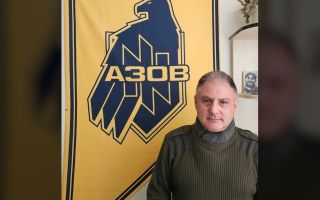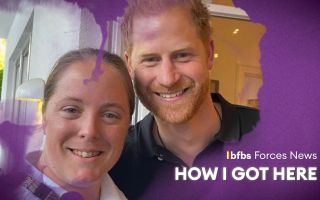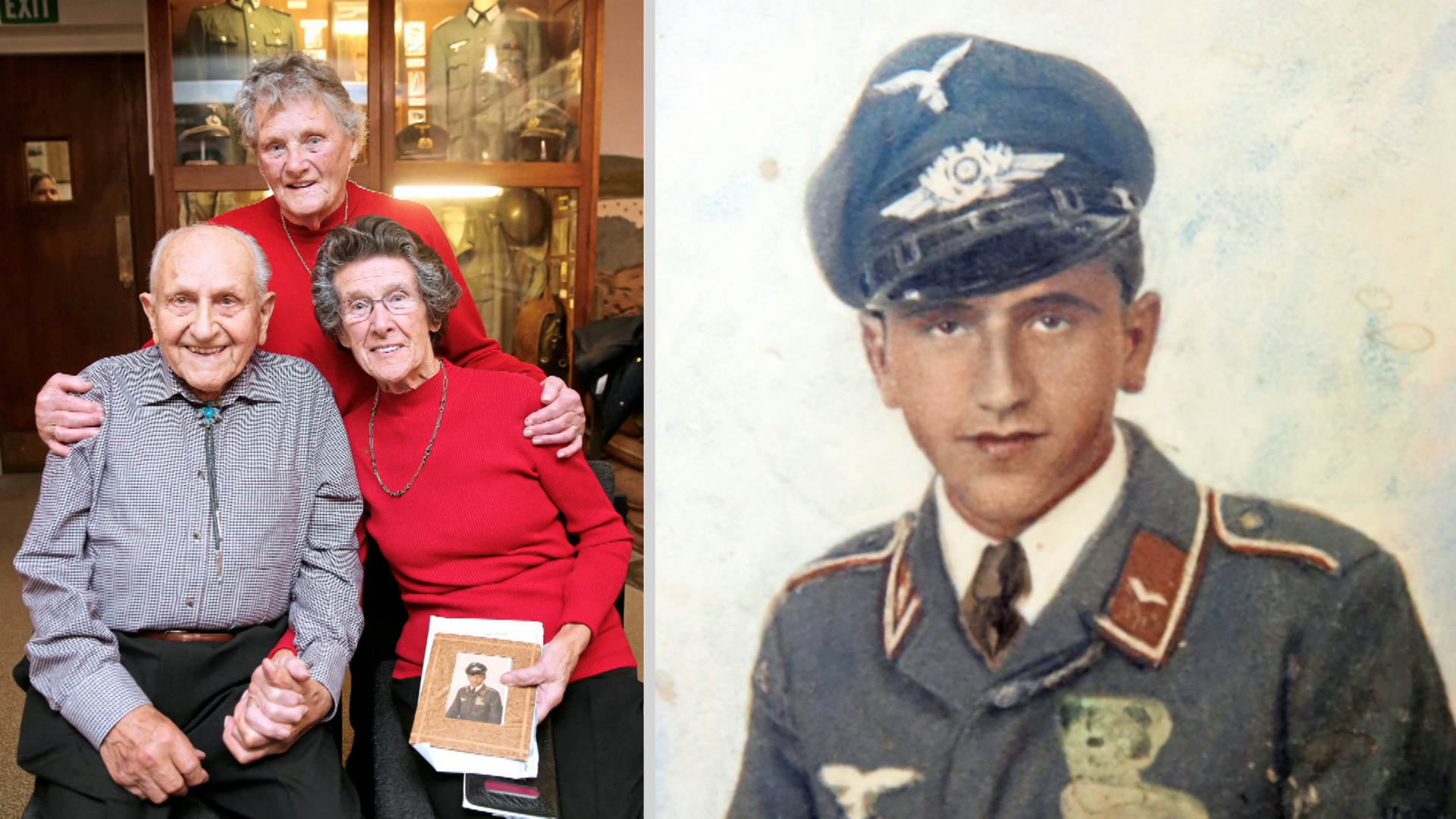
Luftwaffe Radio Operator Reunited With British Family He Helped During The War

A former Luftwaffe radio operator who smuggled food to a struggling family in occupied Guernsey has returned to stay with them as their guest of honour.
Rudi Schoberl, 96, risked certain execution when he took pity on widowed Netta Hallett and her eight children.
The German veteran was posted on the Channel Island in 1943 when he sent messages to Hitler's pilots encoded by the famous Enigma machine.
Despite being banned from fraternising with locals, the then 23-year-old struck up an unlikely friendship with the woman and her children.
Even though having barely enough to eat himself, Rudi exchanged his cigarette rations for precious food for them.
The family never forgot him, even when he was in a Prisoners of War (PoW) camp at the end of the war.
During his imprisonment, Netta sent him food parcels, including Guernsey butter which he had come to love.
Rudi proudly told his PoW captors the food had come from his 'Guernsey mum'.
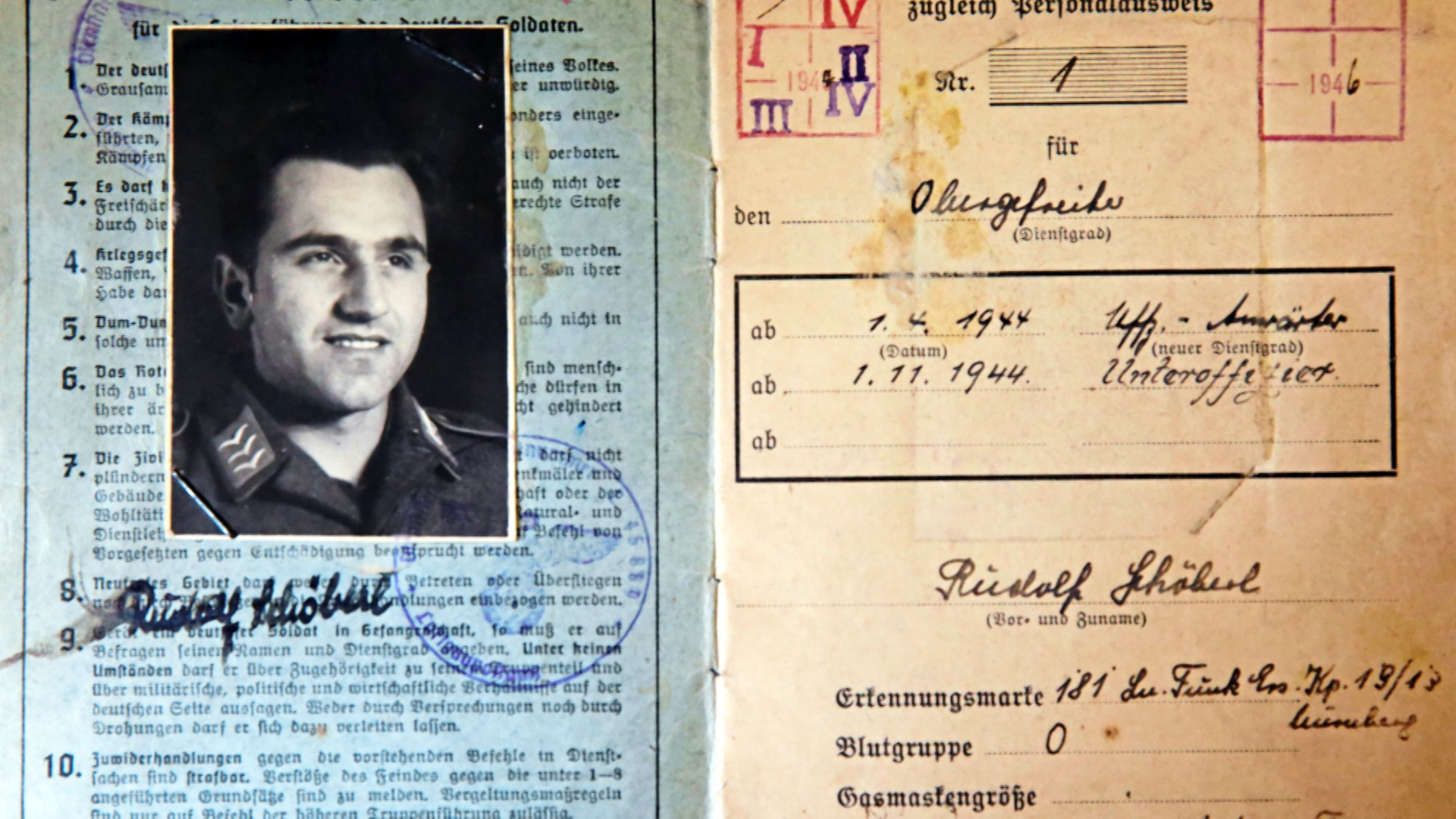
When he was finally released in 1948, he fell in love with the English way of life and set up home in Essex.
He remained in contact with Netta and her family and even went back to visit them a couple of times, the last in 1974.
Now, for the first time in 43 years, he has gone back to Guernsey, accompanied by his daughter, granddaughter and two great-granddaughters.
They have spent several days with Netta's daughter Loretta Winterson, who was a 13 year-old girl when he helped her family.
Lorretta, now 86, said: "He did so much to help my mum - our dad died just before the war started and the baby wasn’t born yet.
“He was so good to us and he’s wonderful even now, at his age. He risked his life with so many of the things he did for us.
"If he’d been caught, they would have shot him. Those little things, they didn’t tolerate.”
Rudi told them of the hardships he suffered as a young wartime recruit when he ate cats, dogs and rats which were skinned and spit-roasted over an open fire.
He also told them how he helped another family in occupied France before being posted to Guernsey. He added:
“I think back and I wonder how I got away with it. My whole life was just helping people, I have no regrets.”
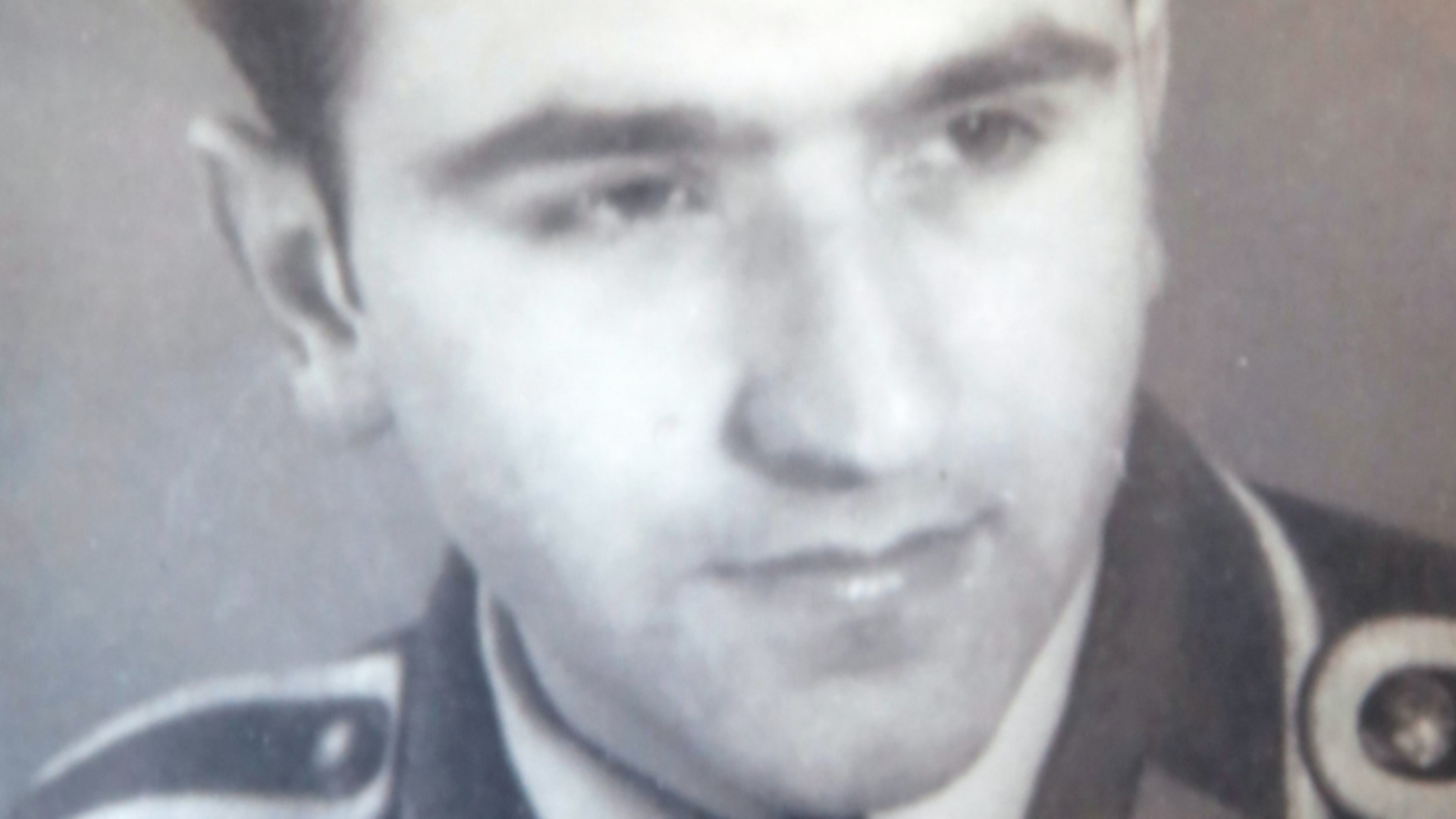
He also said his mother showed the same kindness in their native Germany, taking food to Russians in a prison camp near the family home.
She was caught twice, and the second time warned by the German authorities that a third time would see her taken to a concentration camp.
But she was undeterred and carried on her secret acts of kindness, managing to avoid detection.
After the war, she encouraged Rudi to stay in England.
Loretta said: “His mum said ‘are you happy in England?’ and Rudi said ‘yes.’
“She said ‘I think you should stay there then.”
Rudi married an Englishwoman, Joyce, but found that few people would speak to him because of his wartime past.
He laughed at the memory of one report in a local newspaper:
“It said ‘If you want a council house, join the German air force."
Since then, he has spent his life in England and celebrated his 96th birthday in June by taking to the skies again in a plane.
Cover picture courtesy of SWNS.





